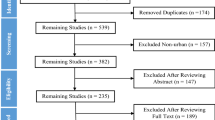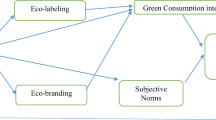Abstract
Some studies show that there are external, infrastructural, and economic factors that enable individuals and communities to act ecologically. A variable associated with sustainable behavior is the level of satisfaction with infrastructural and economic factors, which in turn relates to recycling behavior. The main aim of this study was to assess the reliability and validity of the customer satisfaction with recycling scale and to analyze its relationship with sociodemographic variables (age and gender), house location (in the center or the suburbs, population size of), and psychological variables (self-reported individual recycling behaviors, general satisfaction with recycling service companies, and the perception of costs and the quality of service). A total of 1498 individuals responded to the in-home questionnaire related to these variables. Exploratory and confirmatory factorial analyses confirm a good fit for a four-dimensional model: assurance, tangibles, empathy, and communication. Results show that those individuals who live in town centers tend to self-report higher levels of satisfaction with tangibles than those living in the suburbs. Population sizes correlate significantly and negatively with the four dimensions of service satisfaction, while age seems to relate significantly and negatively to all the studied variables. Finally, we discuss the implications regarding the importance of customer satisfaction in facilitating the environmentally responsible behavior.

Similar content being viewed by others
References
Bamberg, S., & Möser, G. (2007). Twenty years after Hines, Hungerford, and Tomera: A new meta-analysis of psychosocial determinants of pro-environmental behavior. Journal of Environmental Psychology, 27, 14–25.
Bator, R. J., Bryan, A. D., & Schultz, P. W. (2011). Who gives a Hoot? Intercept surveys of litterers and disposers. Environment and Behavior, 43, 295–315.
Blake, J. (1999). Overcoming the ‘value-action gap’ in environmental policy: Tensions between national policy and local experience. Local Environment, 4, 257–278.
Brown, T. (2006). Confirmatory factor analysis for applied research. New York, NY: Guilford Press.
Bruhn, M., & Georgi, D. (2006). Services marketing: Managing the service value chain. Harlow, U.K.: Pearson Education.
Buttle, F. (1996). SERVQUAL: Review, critique, research agenda. European Journal of Marketing, 30(1), 8–32.
Cabrera-Nguyen, P. (2010). Author guidelines for reporting scale development and validation results in the journal of the society for social work and research. Journal of the Society for Social Work and Research, 1(2), 99–103. doi:10.5243/jsswr.2010.8
Chakrabarty, S., Whitten, D., & Green, K. W. (2008). Understanding service quality and relationship quality in is outsourcing: Client orientation and promotion, project management effectiveness, and the task-technology-structure fit. Journal of Computer Information Systems, 48(2), 1–15.
Corral-Verdugo, V. (2012). The positive psychology of sustainability. Environment, Development and Sustainability, 14, 651–666.
Costello, A., & Osborne, J. (2009). Best practices in exploratory factor analysis: Four recommendations for getting the most from your analysis. Pan-Pacific Management Review, 12(2), 131–146.
Duffy, B. (2000). Satisfaction and expectations: Attitudes to public services in deprived areas. London, U.K.: London School of Economics.
Edvardsson, B. (2005). Service quality: Beyond cognitive assessment. Managing Service Quality, 15, 127–131.
González-Torre, P. L., & Adenso-Diaz, B. (2005). Influence of distance on the motivation and frequency of household recycling. Waste Management, 25, 15–23.
González-Torre, P. L., Adenso-Diaz, B., & Ruiz-Torres, A. (2003). Some comparative factors regarding recycling collection systems in regions of the USA and Europe. Journal of Environmental Management, 69, 129–138.
Grönroos, C. (1984). A service quality model and its marketing implications. European Journal of Marketing, 18, 35–44.
Hamilton, J. A., Crompton, J. L., & More, T. A. (1991). Identifying the dimensions of service quality in a park context. Journal of Environmental Management, 32, 211–220.
Henson, R., & Roberts, J. (2006). Use of exploratory factor analysis in published research: Common errors and some comment on improved practice. Educational and Psychological Measurement, 66, 393–416. doi:10.1177/0013164405282485
Heskett, J., Sasser, W. E, Jr, & Schlesinger, L. (1997). The service profit chain: How leading companies link profit and growth to loyalty, satisfaction, and value. NY: Free Press.
Hu, L. T., & Bentler, P. M. (1999). Cutoff criteria for fit indexes in covariance structure analysis: Conventional criteria versus new alternatives. Structural Equation Modeling: A Multidisciplinary Journal, 6(1), 1–55. doi:10.1080/10705519909540118
Iacobucci, D., Grayson, K. A., & Ostrom, A. L. (1994). The calculus of service quality and customer satisfaction: Theoretical and empirical differentiation and integration. Advances in Services Marketing and Management, 3(1), 1–68.
INE (2011). Instituto Nacional de Estadística. España.
Khalifa, M., & Liu, V. (2003). Satisfaction with Internet-based services: The role of expectations and desires. International Journal of Electronic Commerce, 7, 31–49.
Kollmuss, A., & Agyeman, J. (2002). Mind the gap: Why do people act environmentally and what are the barriers to pro-environmental behaviour. Environmental Education Research, 8, 239–260.
Kotler, P., & Keller, K. (2006). Marketing management (12th ed.). Upper Saddle River: Prentice Hall.
Mayer, D. M., Ehrhart, M. G., & Schneider, B. (2009). Customer contact and intangibility as boundary conditions of service climate—Customer satisfaction link. The Academy of Management Journal, 52, 1034–1050.
Mongkolnchaiarunya, J. (2005). Promoting a community-based solid-waste management initiative in local government: Yala municipality, Thailand. Habitat International, 29(1), 27–40.
Norusis, M. J. (1994). SPSS 8.0 guide to data analysis. Englewood Cliffs, NJ: Prentice-Hall.
Parasuraman, A., Zeithaml, V. A., & Berry, L. L. (1985). A conceptual model of service quality and its implications for future research. Journal of Marketing, 49, 41–50.
Parasuraman, A., Zeithaml, V. A., & Berry, L. L. (1988). SERVQUAL: A multi-item scale for measuring consumer perceptions of service quality. Journal of Retailing, 64, 12–40.
Pirani, E., & Secondi, L. (2011). Eco-friendly attitudes: What European citizens say and what they do. International Journal of Environmental Research, 5, 67–84.
Reicheld, F. F. (1996). The loyalty effect. Boston: Harvard Business School Press.
Schreiber, J. B., Nora, A., Stage, F. K., Barlow, E. A., & King, J. (2006). Reporting structural equation modeling and confirmatory factor analysis results: A review. The Journal of Educational Research, 99, 323–338.
Schultz, P. W., Bator, R. J., Large, L. B., Bruni, C. M., & Tabanico, J. J. (2013). Littering in context: Personal and environmental predictors of littering behaviour. Environment and Behavior, 45, 35–59.
Song, Q., Wang, Z., & Li, J. (2012). Residents’ behaviors, attitudes, and willingness to pay for recycling e-waste in Macau. Journal of Environmental Management, 106, 8–16.
Spreng, R. A., & Singh, A. K. (1993). An empirical assessment of the SERVQUAL scale and the relationship between service quality and satisfaction. In D. W. Cravens & P. R. Dickson (Eds.), Enhancing knowledge development in marketing (pp. 1–6). Chicago, IL: American Marketing Association.
Tabernero, C., & Hernández, B. (2011). Self-efficacy and intrinsic motivation guiding environmental behavior. Environment and Behavior, 43(5), 658–675.
Woodside, A. G., Frey, L. L., & Daly, R. T. (1989). Linking service quality, customer satisfaction, and behavioral intention. Journal of Health Care Marketing, 9(4), 5–17.
Worthington, R. L., & Whittaker, T. A. (2006). Scale development research a content analysis and recommendations for best practices. The Counseling Psychologist, 34(6), 806–838. doi:10.1177/0011000006288127
Acknowledgments
The authors disclosed receipt of the following financial support for the research and/ or authorship of this article: This article was based on two research projects supported by the Spanish Ministry of Science and Technology under Grants PSI2009-07423 and PSI2014-58609-R in which Carmen Tabernero is the main researcher.
Author information
Authors and Affiliations
Corresponding author
Rights and permissions
About this article
Cite this article
Tabernero, C., Cuadrado, E., Luque, B. et al. The importance of achieving a high customer satisfaction with recycling services in communities. Environ Dev Sustain 18, 763–776 (2016). https://doi.org/10.1007/s10668-015-9676-4
Received:
Accepted:
Published:
Issue Date:
DOI: https://doi.org/10.1007/s10668-015-9676-4




